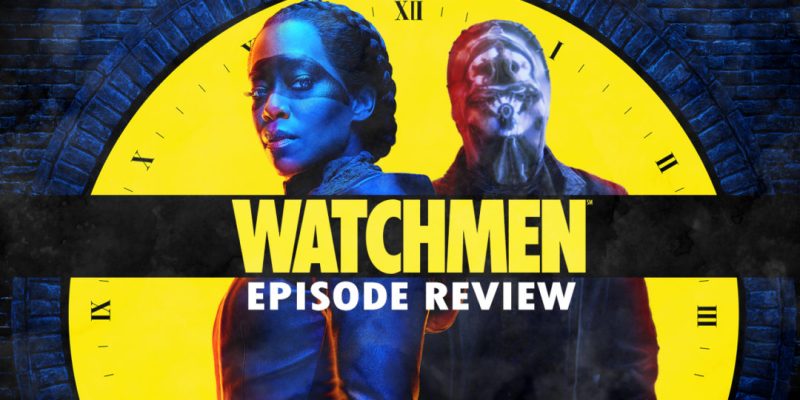Watchmen is considered one of the most important graphic novels of all time and included on Time’s list of the best English-language novels of the last 100 years. The series has become something of a sacred story, in part because author Alan Moore insisted that Watchmen should never have a sequel. Published in 1986 and 1987, the story is a product of the Cold War and the anxieties about nuclear Armageddon it created. Taking Watchmen out of this time period would create a story that is foolhardy at best and misguided at worst.
At least that was the perception when HBO announced that The Leftovers co-creator Damon Lindelof would be helming a Watchmen TV show that would be an original story set in the same universe. The premiere takes place 34 years after the original comic and focuses on Angela Abar (Regina King of If Beale Street Could Talk), a former Tulsa, Oklahoma police officer who still assists the department as the vigilante Sister Night. The police have taken to hiding their faces and identities because they’re frequently attacked by a violent white supremacist group called the 7th Cavalry whose members don Rorschach masks to commit their crimes. When the Cavalry murders a cop after three years of inactivity, Chief Judd Crawford (Don Johnson of Miami Vice) calls on Sister Night and his entire police force to snuff out the group once and for all.
The 1943 Rodgers & Hammerstein musical Oklahoma! is referenced multiple times in Watchmen’s premiere. The episode’s title, “It’s Summer and We’re Running Out of Ice,” is a quote from one if its songs, a song featured in the final shot of the episode. Chief Judd goes to see a local theater company’s all African American production of the show and later discusses it at dinner with his wife and Angela, singing “People Will Say We’re in Love” to his guests.
Historically, Oklahoma! is regarded as the first book musical, establishing a template used by The Sound of Music, The Phantom of the Opera, and Hamilton. The musical features a mostly white cast of cowboys and farmgirls and the only major conflict is caused by the unrequited love of the jealous farm hand Jud Fry. When Jud is killed in the show’s last few minutes, the show quickly moves on to depict the main couple riding off into the sunset.

Oklahoma! is a romanticized version of frontier life. Racism clearly existed during the early 20th century specifically, but that wasn’t addressed because serious discussions about serious issues wasn’t what people went to musicals for. They were big events to make you feel good and leave you humming a catchy tune.
Like an all black production of Oklahoma!, Watchmen is subverting a classic property. The reference also makes it clear that the show will be focused on the issue of race.
The show’s very first scene shows the KKK slaughtering a group of African Americans with glee, and the 7th Cavalry are their modern equivalent, drawing inspiration from the conservative and fascist tendencies of one of Watchmen’s main characters.

Watchmen is also examining the role of police in society. The first text in the show is a still from a silent movie where Oklahoma lawman Bass Reeves tells a scared town that “There will be no mob justice today! Trust in the law!” The police are portrayed as being the heroes, standing up to the vitriolic hate that the 7th Cavalry spew as they try to incite violence. The heroes and masked vigilantes all work for the police in some capacity, and Chief Judd is a righteous and friendly authority figure.
This seems to gloss over the real-world issues between minorities and the police, but nothing is ever simple in Watchmen. It’s hopefully just a matter of time before Lindelof twists his depiction of the police into something a bit more compelling and multifaceted.
While it’s still unclear what the 7th Cavalry’s ultimate goal is, they’re shown stockpiling watch batteries to use for some purpose and have a massive chain gun at their stronghold. All of their members are given suicide pills they can use to prevent interrogation. The 7th Cavalry means business.

Are the Tulsa police willing to go even further to stop them? Chief Judd declares that lethal force is legal until the Cavalry is defeated, which thrills the majority of his police. There’s clearly potential for them to become more authoritarian and ask the people of Tulsa to sacrifice some of their civil liberties to stop the terrorists.
The show has some loose threads that don’t feel like they have a specific purpose yet, but they most assuredly will. Lindelof and Jeremy Irons have been coy about if the Oscar-winning actor is playing Watchman mastermind Adrian Veidt, aka Ozymandias. If he is, what is his role in all of this? There’s also American Hero Story, a show within the show based on the Watchmen heroes the Minutemen that has the potential to serve as a version of Tales of the Black Freighter, a comic within the original comic that provided an interlude echoing the themes of the main plot.
The pilot ends with a somber shot that captures the mission statement of the show by recreating the comic’s iconic opening pages. HBO’s Watchmen is going to be a show that embodies life in 2019 America. It’s chaotic, and there’s a palpable sense of hatred festering under the surface waiting for a spark to set off a crisis that may take everyone down with it. Tonally the show lines up with the original series, but we’ll have to wait and see how all of the pieces fit together. If the rest of the series is as strong as this episode was, Watchmen could end up being one of the best shows of 2019.
